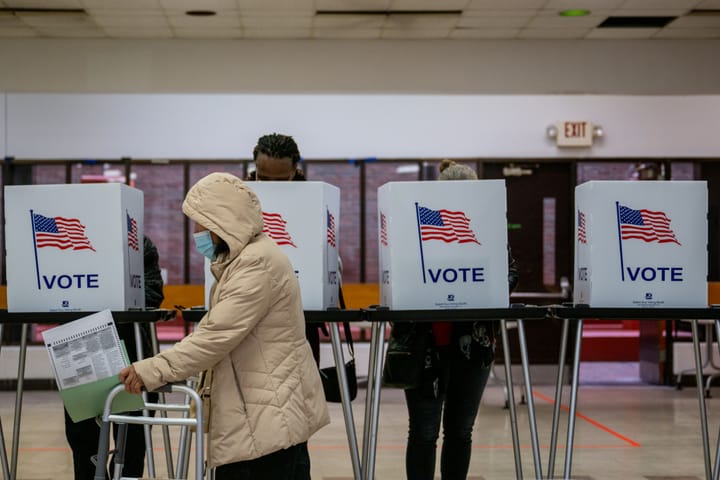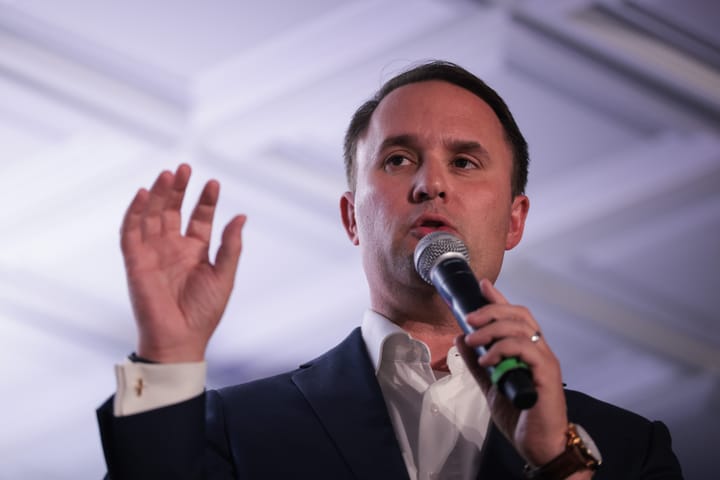On Election Night 2020, there was commotion at the convention center in downtown Detroit, Michigan, where absentee ballots were being counted. Republican groups had called for a wave of supporters to show up at the site, and many of them raised claims of election fraud. Democratic and nonpartisan election groups dispatched volunteers to be present as well, adding to the crowds. The rush of volunteers who showed up—about double the permitted number of challengers at the site—initially flooded the counting floor at the arena, then called the TCF Center, in the throes of the Covid-19 pandemic.
Hundreds of poll challengers roamed the basement where ballots were piled, with one observer urging her colleagues to “challenge every single ballot.” Some observers ignored the rule keeping their distance to an allowed 6 feet away from the counters, and began encircling tables and chanting “stop the count.” Some of those present had to be removed from the floor by police, like one challenger in a white full-face mask who yelled that the process was “crooked,” and protestors later banged on windows to the counting room. On social media, fevered claims circulated, like a photo of ballots supposedly being imported on a wagon—though the supposed proof was a snapshot of a local news photographer moving equipment.
But after election administrators worked in the tense atmosphere until Thursday at 4:30 am, the Detroit ballots were counted, the Detroit Free Press wrote. Chris Thomas, a former director of elections for the Michigan Secretary of State who worked under the administrations of both parties, worked to fact-check claims on social media, saying he was "extremely confident" in Detroit’s vote-counting process.
Video: Sludge's David Moore speaks with Kate Mason, election protection coordinator at Michigan United, about statewide efforts to safeguard the 2024 elections.
A couple weeks later, the Michigan appeals court rejected as “not credible” a Republican legal challenge to the counting of absentee ballots in Detroit. On Nov. 18, the Wayne County Board of Canvassers—after an initial refusal by its two Republican members—certified the election results.
Learning from the 2020 experience, election administrators oversaw a smoother ballot counting process in the 2022 midterms, ensuring that the downtown Detroit site was free of chaos. Two Republican statewide candidates who had denied the 2020 election result, gubernatorial challenger Tudor Dixon and state attorney general challenger Matt DePerno, conceded their races the day after voting.
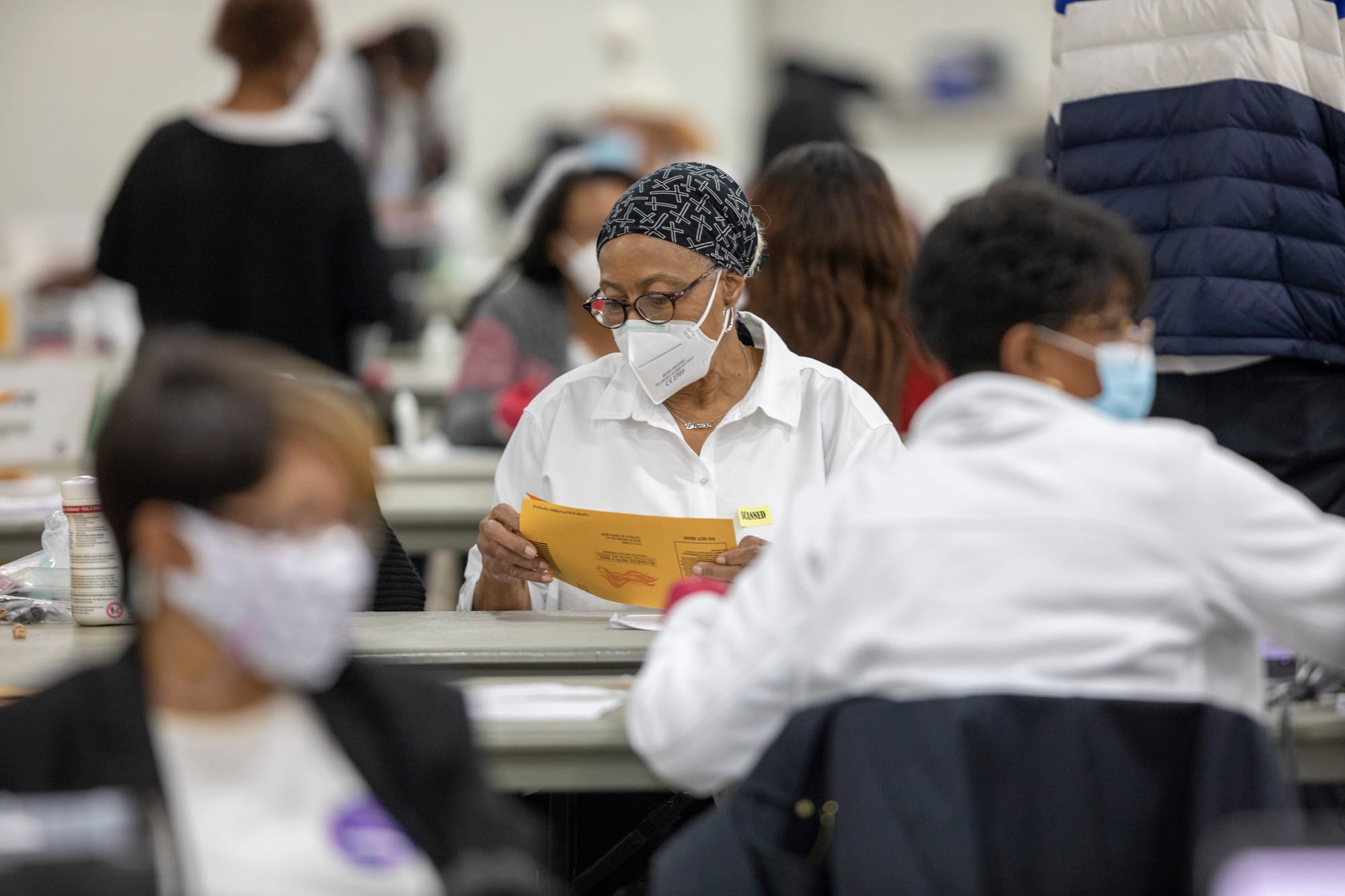
Now in the 2024 election, the nonpartisan coalition Michigan United is working to counter voter suppression tactics and address the disenfranchisement of marginalized communities by countering what it calls “anti-voter challengers.”
The nonprofit Michigan United was formed in 2013 out of a statewide coalition of churches, labor, and community groups working to strengthen democracy, defend civil rights, and promote a fair economy. Sludge spoke with attorney Kate Mason, election protection coordinator with the group, about how its poll monitor program assists voters at polling places and feeds updates to a statewide election protection coalition.
“Our election protection work is not about any candidate or party, it is 100% nonpartisan,” Mason said. “It is about making sure that our elections here are free, fair, safe, and accessible.”
A key part of the group’s election work is its poll monitor program. The poll monitors, part of what the group calls its “rapid-response program,” call in reports from polling places to a statewide hub. The group will also work closely with Secretary of State Jocelyn Benson’s office to do a postmortem after the election.
Another part, a nonpartisan challenger program, is more specialized, requiring that challengers be credentialed by an organization or party.
“Some anti-voter challengers will try to make challenges, the vast majority of which are not permissible in the absentee voter counting room,” Mason said. “Our role is to make sure we know the rules backwards and forwards so we’re helping support the floor supervisors, election administrators, and let them do their job."
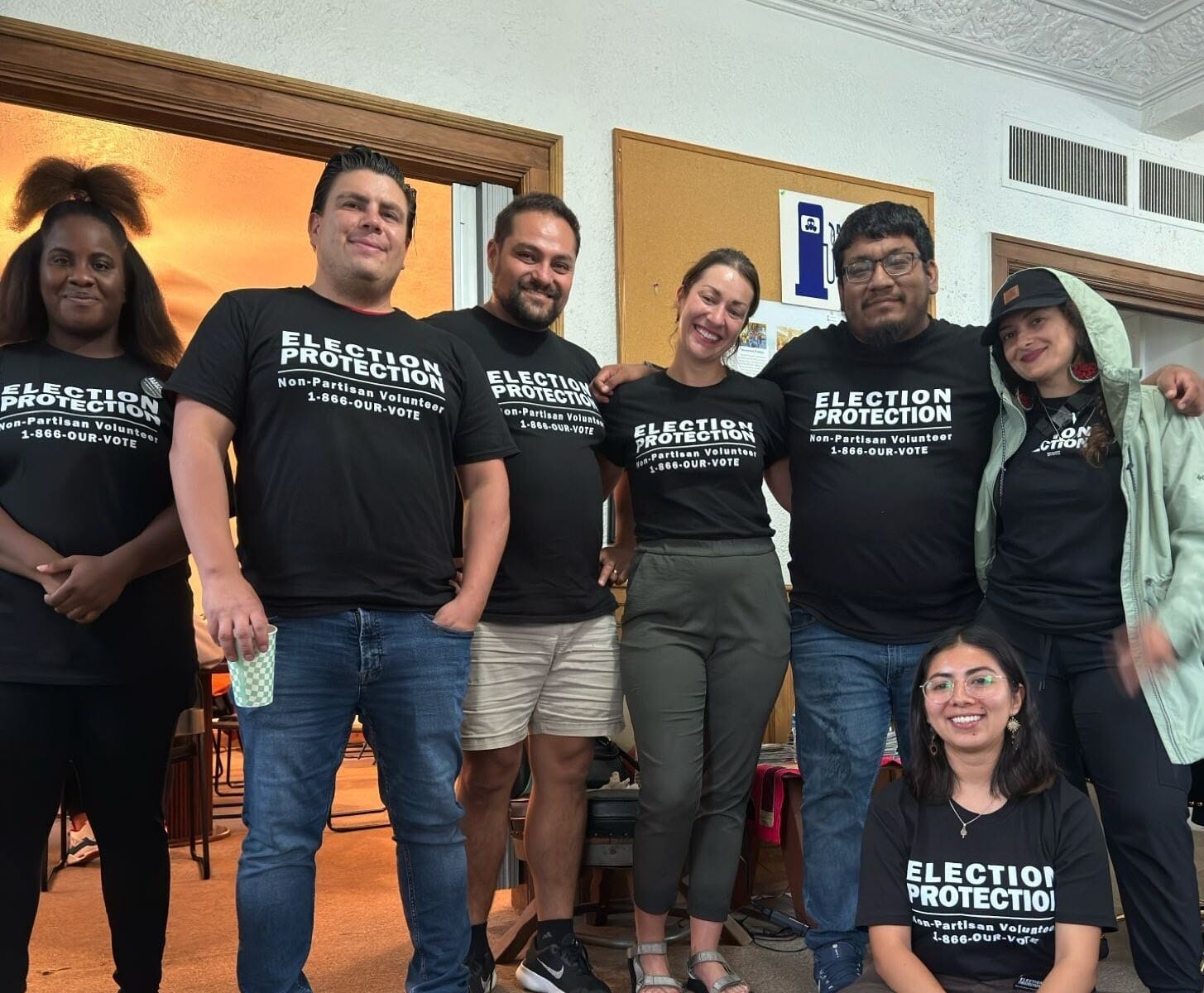
Michigan is a premier battleground state this year, with the presidential race polling neck-and-neck, a toss-up race for U.S. Senate, several close contests for U.S. House, and other state races on the ballot such as for the Michigan House, the Michigan Supreme Court, and state education boards.
In March, the Republican National Committee filed a lawsuit, RNC v. Benson, alleging that Michigan has failed to keep its voter rolls up to date under the National Voter Registration Act, a complaint that the nonpartisan Brennan Center for Justice moved to dismiss, representing the nonpartisan League of Women Voters of Michigan. The Brennan Center described the RNC’s case as a continuation of conservative activists’ efforts in Michigan in recent years to sow unfounded doubts about the quality of the state’s voter rolls—and push jurisdictions into purging eligible voters.
Mason said that a Michigan United poll monitor volunteer might encounter unclear signage at a polling place, a voter seeking translation assistance, a voter who needs to look up their precinct information on the secretary of state’s website, or a recalcitrant poll worker.
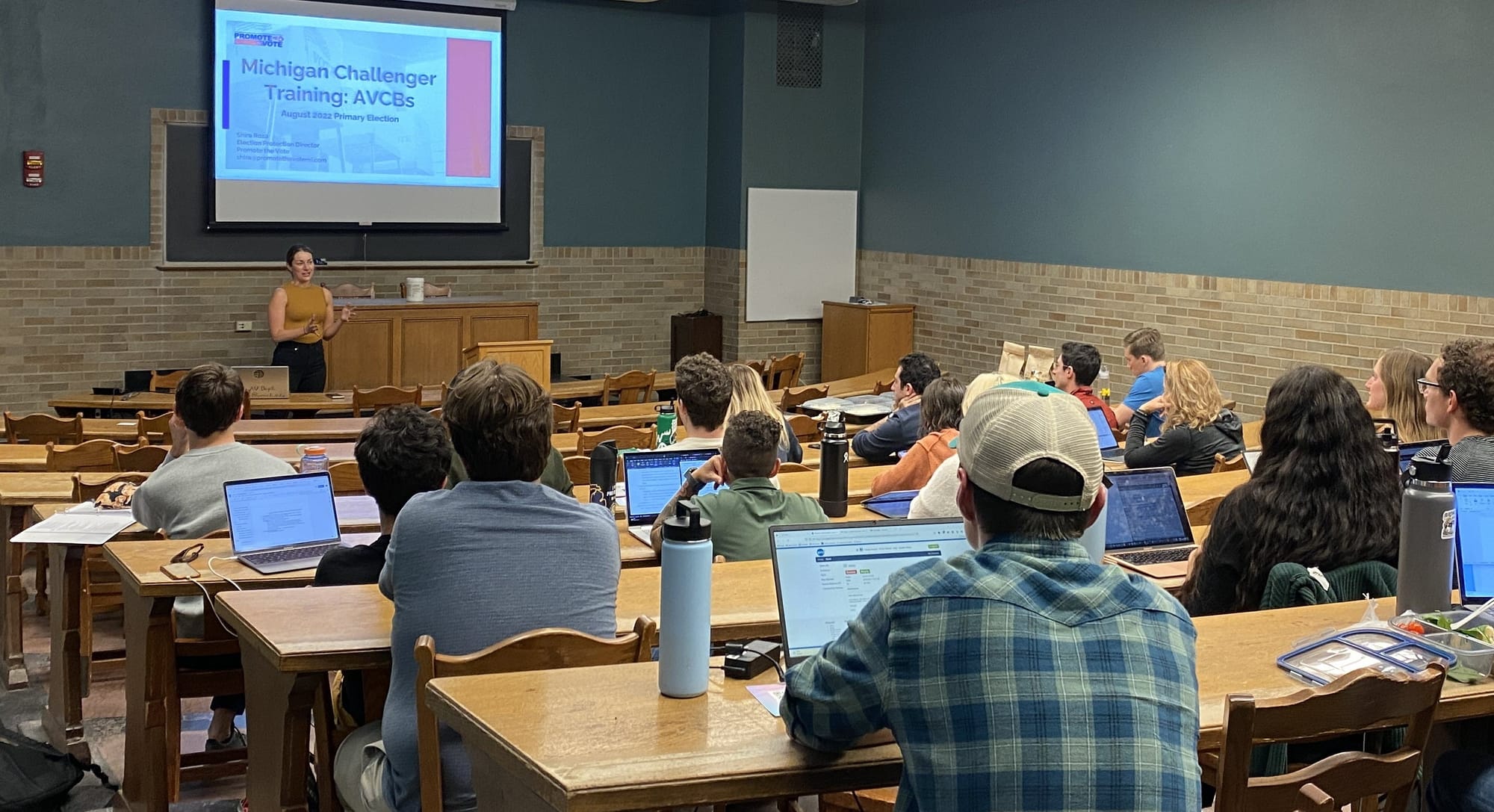
Conservative groups have made a concerted effort since the last election to recruit more poll watchers. For example, a Conservative Partnership Institute project called the Election Integrity Network has been working to recruit what its leader, Cleta Mitchell has described as “a volunteer army of citizens” to counter what she says is Democratic bias in election offices.
In 2021, Michigan Senate Republicans introduced a package of bills that would restrict voting access, including a ban on mailing absentee ballot applications to all registered voters. Grassroots groups in the Defend Black Voters coalition pushed back with a campaign against the legislation, including by calling on large Michigan companies to cut off donations to any politician who supported the bills. Democratic Gov. Gretchen Whitmer vetoed the restrictive voting measures in 2021, and in 2023 signed a package of election reform bills that expanded access to voting.
Donald Trump has not committed to accepting the election results if he loses, and as many conservative legislators and candidates echo claims of a “stolen” 2020 election, many voters are still inclined to believe, without evidence, in widespread election fraud. In March, the nonprofit organization States United Action released a report finding that 31 Michigan state legislators met the criteria of undermining the integrity of the 2020 election based on baseless legal theories. A count published by USA Today, not long after the 2020 contest, found that 61 of 62 pro-Trump legal challenges to the results of the presidential election failed, due to lack of standing or on the merits.
A strong majority of Michigan voters adopted a new law in 2018 allowing every eligible voter to request an absentee ballot, and this year already more than 670,000 voters have submitted their completed ballots, according to the secretary of state’s office. Detroit has opted to start its in-person early voting on Oct. 19, and Canton Township and East Lansing will begin on Oct. 21, with most Michigan jurisdictions beginning early voting on Oct. 26.
>> View, like, and share this video on Instagram
Sludge video produced by Spencer Snyder
Follow Sludge on Instagram, X / Twitter, Facebook, YouTube, Mastodon, and Bluesky for more 2024 elections coverage
